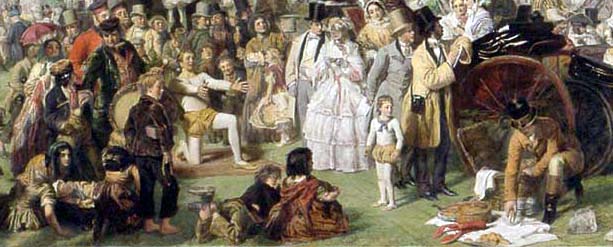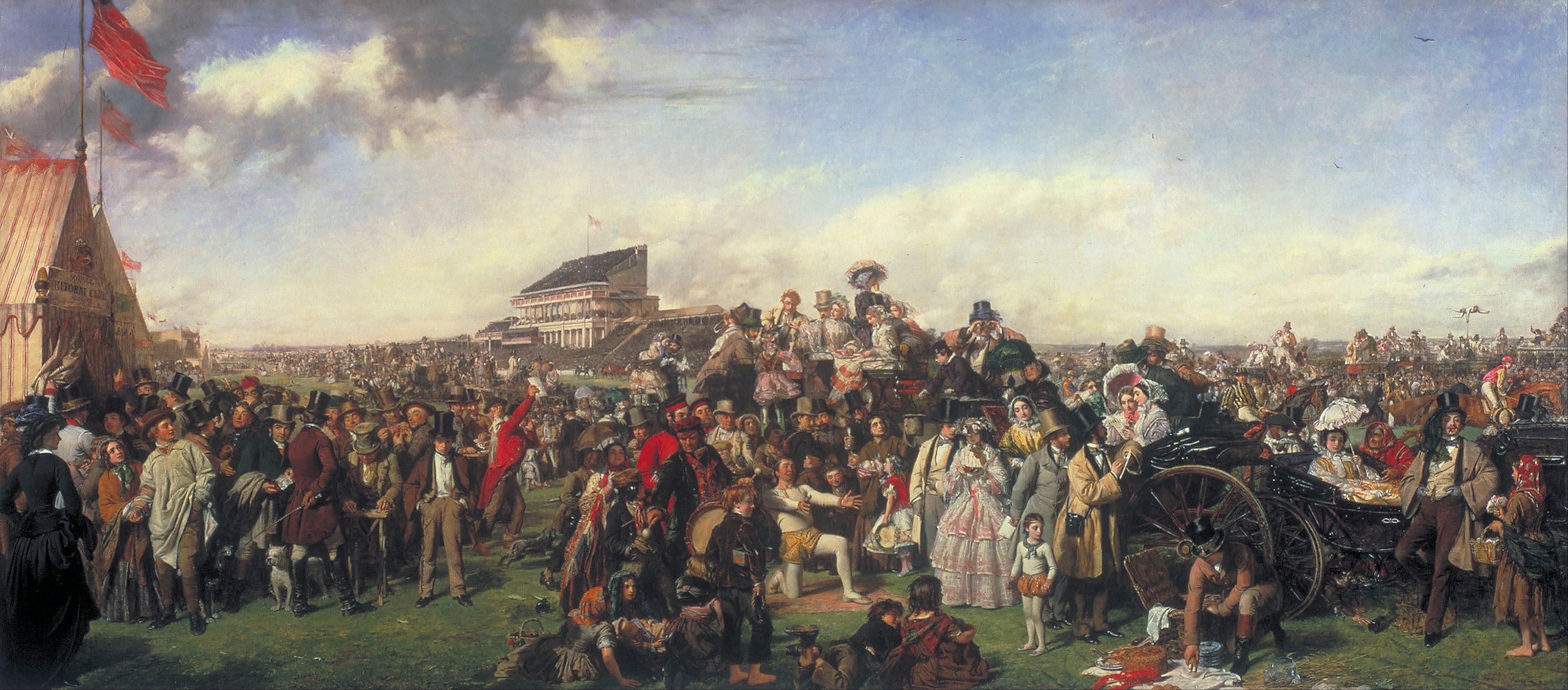“My first Derby,” William Powell Frith explained, “had no interest for me as a race, but as giving me the opportunity of studying life and character.” after considerable preparation, Frith eventually painted the scene as an amusement tinged with vulgarity. He peopled it with sordid if not immoral characters, cardsharps and scammers fleecing gullible gamblers at “thimble-rigging,” a pickpocket at work, and a carriage of courtesans– a social kaleidoscope and not the race itself.
Scanning the foreground front left to right, a group of gamblers playing “thimble-rigging,” a man an acrobat is waiting for his partner (a young boy) to leap into his arms, and a steward laying out a picnic from a well-stocked hamper. While the acrobat waits expectantly, the boy stops dead in his tracks, looking at the food on the cloth, especially the boiled lobster. Frith said that this vignette was the “main incident” of the picture and represented his feelings about the underclasses in want—but not enough to make a strong case for their betterment as Dickens does in The Old Curiosity Shop when Little Nell wanders through the Derby Day crowd. Nell and her grandfather never see the race, never think about it!
Derby Day may have also inspired Mrs. Isabella Beeton’s “Bill of Fare for a Picnic for 40 Persons,” Beeton’s Book of Household Management. Henry Dorling, her stepfather, was Epsom Downs’s Clerk of the Course, and the family lived on the racetrack premises. Derby Day also inspired Gustave Doré and Henry James, who described the crowds picnicking on carriage tops. Dickens’s Little Nell and her grandfather also visit Epsom on Derby Day.

Featured Image: The Derby Day (1856), oil on canvas. London: Tate Britain
See William Powell Frith. My Autobiography and Reminiscences. New York: Harper & Bros., 1888; Isabella Beeton. The Book of Household Management. London: S. O. Beeton, 1861 Reprint, New York: Oxford University Press, 2000; Gustave Doré and William Blanchard Jerrold. London: A Pilgrimage. London, Grant and Company, 1872; http://gallica.bnf.fr/ark:/12148/bpt6k10470488/f15.image.r=.langEN; Henry James. English Hours. London: Heinemann, 1905; Patricia Connor and Lionel Lambourne, eds. Derby Day 200. London: The Royal Academy of Arts, 1979.

